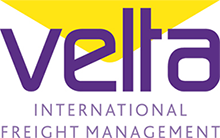
Expanding into global exports can lead to significant business growth. However, many companies fail to capitalise on the potential that exporting can offer due to a lack of understanding, and often, a fear, of developing the business model on an International scale.
So what are some of the misconceptions that deter companies from exploring new markets?
Export Myth 1: There is too much risk involved in exports
From start-ups to established companies, business presents challenges at all levels, and the fear of additional international issues deters companies from expanding business on a global scale.
However, it’s been shown that developing into new, International markets can be beneficial to organisations, increasing the customer base and subsequently, the bottom line.
It is also risky being bound to the domestic market alone. Export sales to a variety of diverse global markets can help reduce the risk that the company may be exposed in the various markets entered, as countries experience different growth rates at any one time.
Research from Western Union Business Solutions highlighted that a quarter of all UK SME’s revenue comes from exports.
Export Myth 2: There is too much to learn about expanding into new markets
There are different cultures, rules and procedures that need to be taken into account when looking to develop business internationally. However, there is a lot of advice readily available in helping companies to develop into new global markets.
The government has set a target to increase UK exports to £1 trillion by 2020, and provides advice and assistance (in some cases, funding) via the DIT (Department of International Trade). Open to Export is another great reference point to help a business to begin the journey into new markets.
If a business utilises the services of a freight forwarder in expanding products internationally, it may be possible to seek their assistance in gaining market knowledge. Many have a network of experienced global agents, through which the freight forwarder can facilitate communications and draw on local experience to aid the transition of products to these new international markets.
Export Myth 3: Language will be a barrier to international business
Not so. In business, English is seen as a universal language. Most companies and representatives will either have a working level of the language themselves or will have an interpreter on hand to enable communication.
Export Myth 4: International competition will be too great for the business to be successful on a global scale
Companies may in fact, face less competition in foreign markets than at home.
In developing countries such as India and China, companies may find that it is easier to increase the growth of their customer base. As these markets are still growing, they offer an attractive proposition as consumers want more choice and are always looking for new status-producing items. There is a particular penchant for ‘Made in Britain’ produce in many such markets as UK products are seen as luxury and high-quality.
Where industry is still growing in developing countries, there is a need for goods and services to supply these companies.
Export Myth 5: Smaller companies don’t have the resources to expand internationally
Through utilising the support and resources available, it can actually be easier for smaller companies to develop their markets globally, than it is for the larger businesses. Over half of all UK businesses that currently export overseas are SME’s.
Operating with more flexibility and, through a level of ingenuity or the recruitment of experts in the local market, smaller companies can adapt products and services to meet the needs of the markets in which they are developing.
When looking to expand product reach to global markets, outsourcing to logistics professionals enables businesses to utilise resources tailored to their specific requirements with little or no upfront investment.
Export Myth 6: It is impossible to reach customers in foreign markets
Through advances in technology, the barriers to expanding internationally have been greatly reduced. With the internet, e-mail and the capability of conducting meetings online, the need for global travel has been greatly reduced. E-commerce has increased market reach, enabling businesses to sell products abroad without having to have a physical presence and online advertising opportunities through social media and PPC (Pay-Per-Click) enable companies to develop marketing strategies for specific target audiences depending on location.
In finding new contacts, international trade shows still hold a strong presence with participants across most industries, eager to make new connections. Trade shows provide direct access to key players of a specific market in one place at one time.
Utilising resources such as the trade opportunities through the DIT can help businesses find partners overseas that will reach out to potential customers. The DIT also offer trade missions, enabling market research to be conducted thoroughly and efficiently with a group of likeminded business people.
Export Myth 7: Shipping abroad is too complex
A global network of air, sea, road and rail freight providers operate to offer worldwide solutions for companies involved in the import and export of goods.
Through utilising the services of a freight forwarder a business can capitalise on the experience of the freight forwarder in providing the best fit for their supply chain. The freight forwarder will choose the most suitable provider, taking in to account costs and transit times. They will also advise on the regulations and requirements to ensure a smooth transit of the company’s products.
So now we have explored the truth behind the export myths, it’s time to ask yourself, are any of these factors preventing your company from exploring export opportunities? If so, why hold back any longer? It’s easier to export than you may think!
Related Blogs
Developing your business for the international exports market
Key business considerations for developing products for export
The role of a freight forwarder in developing export growth for your business
Export documents and processes
Seven myths of export I Infographic
